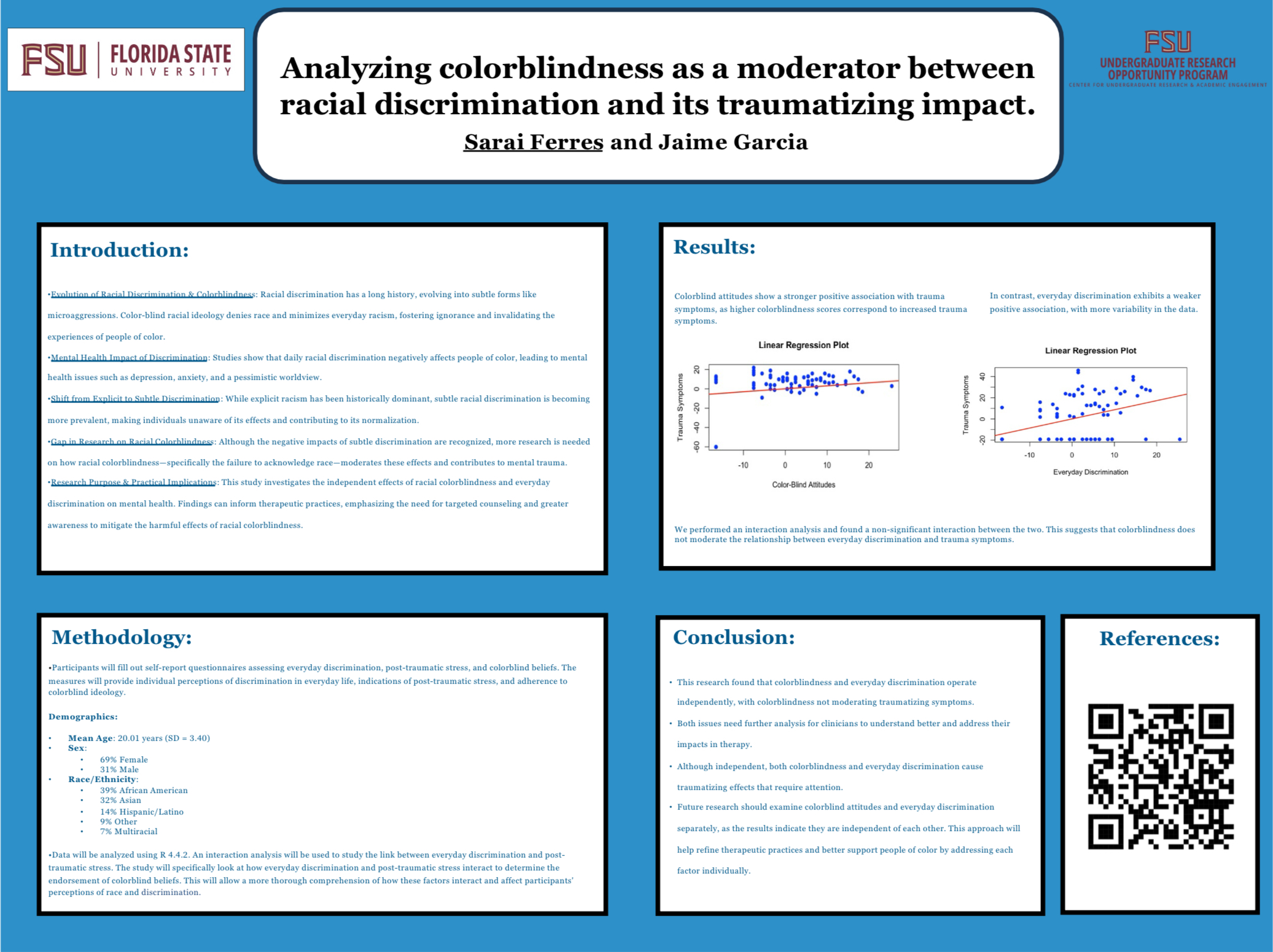Research Symposium
25th annual Undergraduate Research Symposium, April 1, 2025
Sarai Ferres Poster Session 1: 9:30 am - 10:30 am/ Poster #241

BIO
Sarai Ferres is an undergraduate student at Florida State University pursuing a dual degree in psychology and social work. She is from Miami Gardens, Florida, and is deeply committed to learning the complexity of racial discrimination and its consequences on mental health. Her present research examines colorblindness as a mediator of racial discrimination and its traumatizing effects, which is consistent with their deeper interest in the relationship between racial dynamics and psychological well-being. After graduation, she intends to work in the field of mental health, primarily to serve marginalized communities and advance social justice initiatives.
Analyzing colorblindness as a moderator between racial discrimination and its traumatizing impact
Authors: Sarai Ferres, Jaime GarciaStudent Major: Social Work and Psychology
Mentor: Jaime Garcia
Mentor's Department: Psychology Mentor's College: College of Arts and Sciences Co-Presenters:
Abstract
This study examines racial colorblindness as a moderating factor in the relationship between racial discrimination and its traumatizing effects, which can include depression and anxiety. Racial colorblindness, a belief system that ignores race and minimizes the discriminatory experiences of people of color, has become increasingly prevalent. There has been an increased belief that racial discrimination is not an issue and that race does not play a factor in interactions and behaviors. The study aims to raise awareness of its potential influence on individuals' behaviors and interactions by analyzing this belief.
To explore the moderating effects of colorblindness, a literature review and an analysis of survey data were conducted. Statistical analysis will be utilized to determine how colorblindness impacts the traumatic effects of racial discrimination. The findings will indicate whether colorblindness amplifies and buffers the emotional impact of discrimination, with potential long-term consequences for trauma.
The results of this study have important implications for understanding how colorblind ideologies contribute to or mitigate the effects of discrimination. These findings can shape future research and present clinicians with critical information they can use in clinical practice. Further research can bring awareness to the discriminatory impacts people of color face and develop strategies for combating racial discrimination and creating mechanisms to address trauma caused by these experiences.
Keywords: colorblindness, everyday discrimination,

